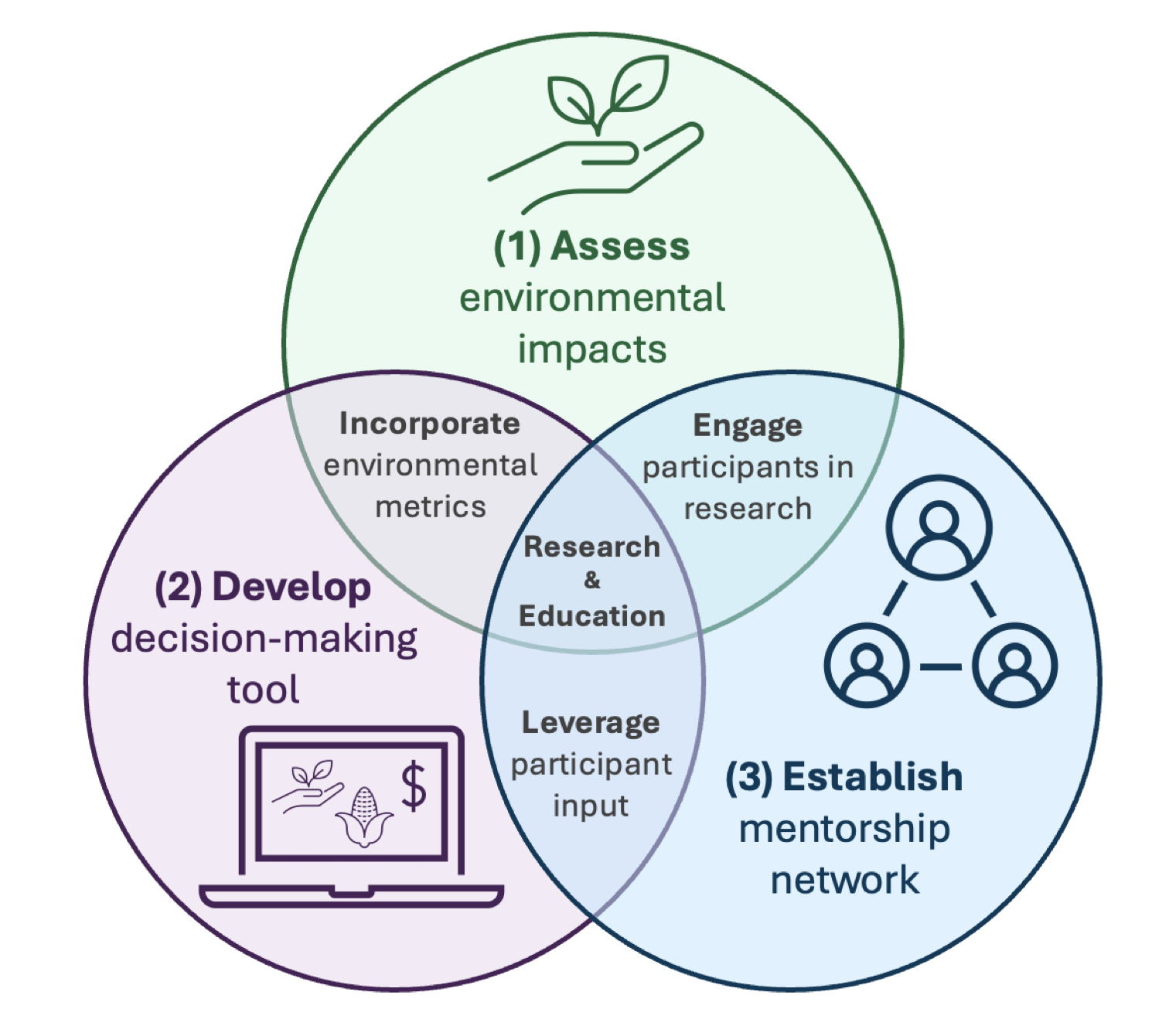
CAREER: Cultivating Sustainable Agriculture and Education through Transitions
CAREER: Cultivating Sustainable Agriculture and Education through Transitions
Funded by NSF 2025-2030
Agriculture plays a crucial role in meeting the food and energy needs of our growing population. However, intensive farming practices can contribute to significant environmental impacts, such as groundwater depletion, soil degradation, and loss of biodiversity. At the same time, these farming systems are increasingly vulnerable to extreme weather events, such as droughts and heavy rainfall, driven by a changing climate. To ensure long-term sustainability, it is essential to balance crop productivity with environmental stewardship. This work focuses on understanding how farming practices impact both the environment and crop resilience under these challenges. Working closely with farmers, the project will develop an easy-to-use tool to help them make informed decisions that optimize productivity while minimizing environmental harm. Additionally, the project will foster education and mentorship through the creation of a mentorship network and connecting agricultural communities with the knowledge and resources needed to achieve more resilient and sustainable agriculture.
The overarching goal of this work is to advance sustainable agricultural practices through research, education, and mentorship by integrating and advancing water footprint and environmental impact assessment tools. A critical challenge in agriculture is the lack of systems-level understanding of how farm management decisions impact the environment under variable and changing climate conditions. This proposal addresses this gap through three specific objectives: (1) to quantify and assess environmental impacts of farm management decisions under variable climate conditions, (2) to develop and implement a site-specific, user-friendly decision-making tool, and (3) to establish and sustain a state-wide mentorship network to recruit and retain students. The underlying research hypothesis is that environmental impacts of agriculture will shift in response to climate transitions due to evolving management decisions, requiring site- and scenario-specific recommendations to minimize negative outcomes. To address this, the research integrates field measurements from an experimental irrigated cropping system under diverse management scenarios, process-based model calibration and validation, life cycle assessment, water footprint analysis, and projections under future climate scenarios. These efforts will culminate in the development of an online decision-support tool to help farmers make informed, sustainable decisions tailored to their specific conditions. The educational aim is to establish tools and networks for long-term learning and mentorship, with a particular focus on supporting neurodivergent students during educational transitions. This includes the creation of a multi-tiered mentorship program to promote broad engagement in environmental and agricultural fields. Together, the research, education, and mentorship efforts will enhance understanding of the interplay between agricultural management, climate variability, and environmental impacts, while fostering a robust, informed, and inclusive workforce dedicated to sustainable agriculture.

